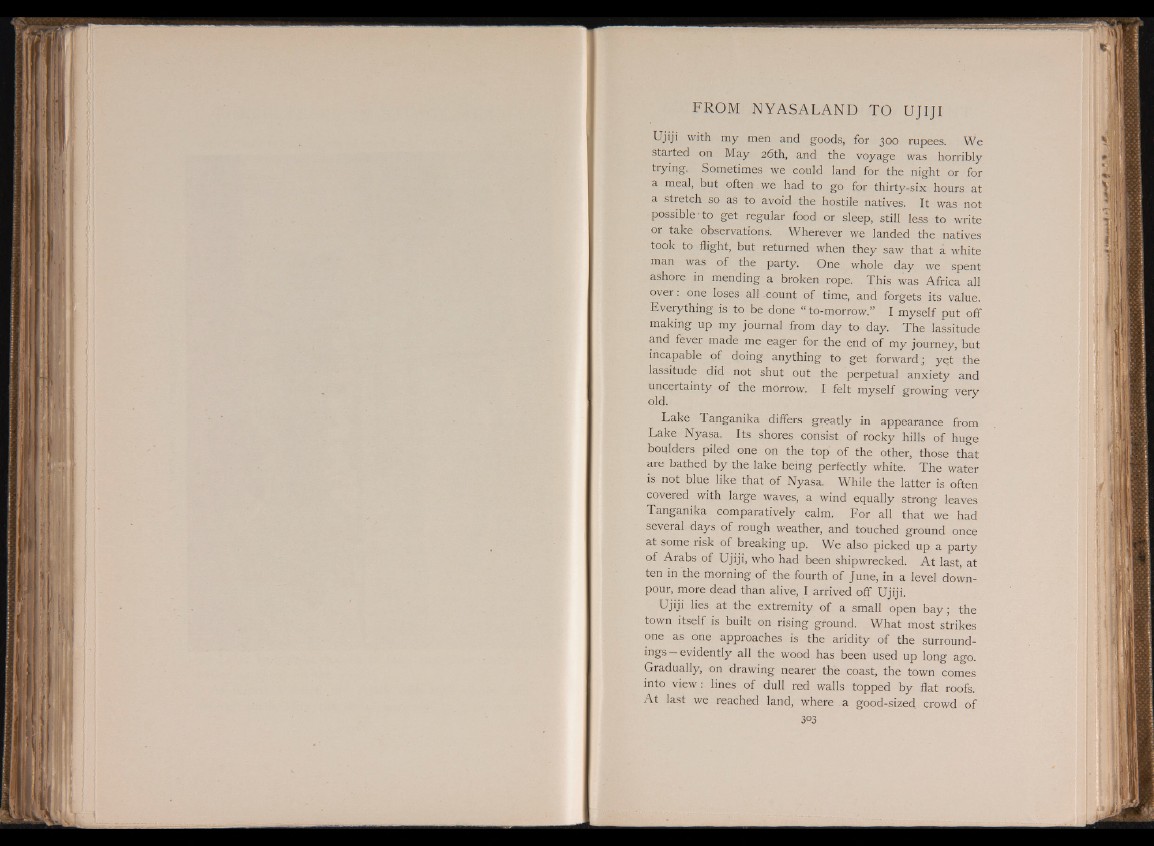
Ujiji with my men and goods, for 300 rupees. We
started on May 26th, and the voyage was horribly
trying. Sometimes we could land for the night or for
a meal, but often we had to go for thirty-six hours at
a stretch so as to avoid the hostile natives. It was not
possible to get regular food or sleep, still less to write
or take observations. Wherever we landed the natives
took to flight, but returned when they saw that a white
man was of the party. One whole day we spent
ashore in mending a broken rope. This was Africa all
over: one loses all count of time, and forgets its value.
Everything is to be done “ to-morrow.” I myself put off
making up my journal from day to day. The lassitude
and fever made me eager for the end of my journey, but
incapable of doing anything to get forward; yet the
lassitude did not shut out the perpetual anxiety and
uncertainty of the morrow. I felt myself growing very
old.
Lake Tanganika differs greatly in appearance from
Lake Nyasa. Its shores consist of rocky hills of huge
boulders piled one on the top of the other, those that
are bathed by the lake being perfectly white. The water
is not blue like that of Nyasa. While the latter is often
covered with large waves, a wind equally strong leaves
Tanganika comparatively calm. For all that we had
several days of rough weather, and touched ground once
at some risk of breaking up. We also picked up a party
of Arabs of Ujiji, who had been shipwrecked. At last, at
ten in the morning of the fourth of June, in a level downpour,
more dead than alive, I arrived off Ujiji.
Ujiji lies at the extremity of a small open bay; the
town itself is built on rising ground. What most strikes
one as one approaches is the aridity of the surround-
ings — evidently all the wood has been used up long ago.
Gradually, on drawing nearer the coast, the town comes
into view: lines of dull red walls topped by flat roofs.
At last we reached land, where a good-sized crowd of
3°3